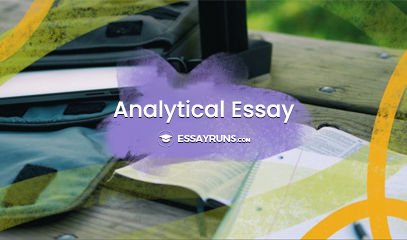写作指导![]() ByCaroline
ByCaroline
Last updated:2025-06-10 14:07:21

Analytical Essay
范文解析与写作指南
核心评分标准
- 1. 有焦点的分析问题——避免泛泛而谈,围绕具体问题展开
- 2. 深入挖掘细节——不仅复述内容,更要分析语言、结构、象征意义
- 3. 逻辑推进清晰——每段围绕一个子论点,层层递进
- 4. 语言准确 + 引用得当——需包含引号和页码,避免无依据的解读
范文:Just Confessions
I. 引言 Introduction
Saul Kassin and Gisli Gudjonsson, in their article for Scientific American Mind, “True Crimes, False Confessions,” argue that “society should discuss the urgent need to reform practices that contribute to false confessions and to require mandatory videotaping of all interviews and interrogations” (2005, p. 26). After analyzing their argument, I shall argue that, although one might object that Kassin and Gudjonsson focus too heavily on the importance of protecting criminal suspects, they provide a compelling argument that social justice requires such reforms as mandatory video-tapping of police interrogations.
段落分析
引出主题、简要介绍文本观点,并提出作者立场。通过引用Kassin & Gudjonsson关于虚假供词的核心论点,明确中心论点——同意他们关于强制录像改革的主张,符合“有焦点的分析问题”标准。
II. 背景分析:Kassin 与 Gudjonsson 的主要论点
In developing their case for the need to reform interrogation tactics, Kassin and Gudjonsson survey a number of studies regarding the role of confessions in criminal investigations. For example, they are at pains to provide evidence that interrogations are often influenced by a bias on the part of the interrogator. Further concern is found in the fact that Miranda rights, as found in the American legal system, are insufficient safeguards, given that suspects, especially innocent ones, often waive those rights. Finally, Kassin and Gudjonsson note that aggressive interrogation tactics can often produce false confessions.
What makes these findings most troubling, according to Kassin and Gudjonsson, is the strong correlation between false confession and wrongful conviction. Trial jurors, we are told, are inclined to give disproportionate weight to a confessions, even taking it to outweigh so-called “hard evidence.” As a characteristic example, Kassin and Gudjonsson cite the case of Bruce Godschalk. Even when DNA evidence proved Godschalk could not have been the rapist, the District Attorney of the case refused to release him from prison, stating that “…I trust my detective and his tape-recorded evidence” (Kassin and Gudjonsson, 2005, p. 28). Because of this tendency on the part of jurors and prosecutors, together with the facts listed above regarding the potential for unrestricted interrogations to elicit false confessions, Kassin and Gudjonsson argue for the need to reform police interrogation tactics.
段落分析
总结原文关键论据:讯问官偏见、Miranda权利不足、高压讯问导致虚假供词,以及虚假供词与错误定罪的关联。通过Bruce Godschalk案例深入挖掘细节,引用精准(含页码),体现“细节分析”与“规范引用”标准。
III. 潜在反方观点的设立与伦理探讨
Underlying their argument is the implicit moral principle that social justice requires that we do everything we can to minimize the potential to wrongly convict innocent persons. This may seem obvious, but one could reasonably question whether it puts too much emphasis on protecting potentially innocent suspects and not enough on convicting potentially guilty criminals.
The difficult moral question we need to ask is how we are to balance the needs of society to protect itself from criminals while at the same time protecting the rights of innocent persons. We need to ask at what cost we are willing to limit the ability of police and Crown prosecutors to prosecute criminal suspects. Imagine, for example, the following two systems: (1) Almost no innocent persons are ever convicted, but a very high percentage of recidivist offenders are able to escape conviction, (2) A very high percentage of offenders are caught and brought to justice; however, a small but non-negligible percentage (say 3%) of innocent persons are unjustly caught in the system and thus wrongly punished for crimes they never committed. Neither of these is very palatable, but if forced to choose, my intuitions favor result (2).
段落分析
提出反方观点——过度保护嫌疑人可能影响定罪效率,通过“两种司法系统”的假设情境,探讨“保护无辜”与“打击犯罪”的伦理权衡,展现批判性思维,逻辑推进清晰。
IV. 对反方观点的回应与回归立场
While I think that this is a reasonable worry to raise given the tenor of Kassin and Gudjonsson’s article, I do not think it ultimately undermines their argument. That is, I think one might reasonably object that they are overly focused on the possibility of false confessions without saying much about the utility of true confessions. However, their specific proposal that interrogations be video-taped does not seem to diminish the ability of police to effectively interrogate suspects and, when possible, to elicit a confession. Indeed, they conclude their essay by citing a study showing that police largely found the practice of video-taping to be quite useful and not to inhibit criminal investigations.
段落分析
回应反方观点:强制录像不会削弱讯问效率,且警方实践证明其有用性。通过“让步-反驳”结构强化立场,逻辑闭环完整,符合“逻辑推进清晰”标准。
V. 结论 Conclusion
So, even if one thinks that Kassin and Gudjonsson are a bit one-side in focusing on false confessions, ultimately I think these authors provide a compelling argument for the need for such reforms as mandatory video-taping of police interrogations.
段落分析
总结核心立场,承认原文可能存在的片面性,但重申强制录像改革的必要性,简洁有力地回应全文论点。
References
Kassin, Saul and Gudjonsson, Gisli (2005). “True Crimes, False Confessions,” Scientific American Mind, July, pp. 24-31.
留学生必看:Analytical Essay 攻略
Analytical Essay 到底是什么?一句话总结:“对某个文本、事件、现象进行深入分析,并提出你的解读。”
和 Argumentative Essay 不一样:
- Argumentative Essay:“我认为X对,我来证明它!”
- Analytical Essay:“这是X,我来分析






